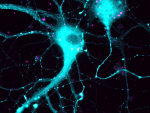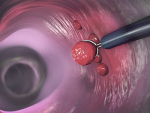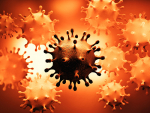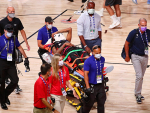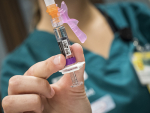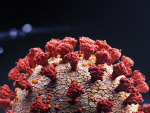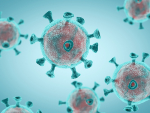Displaying items by tag: school of medicine
These lipids may act as a biomarker for Type 1 diabetes and offer a therapeutic target to prevent the disease.
Tagged under
UAB is one of just 100 sites in the nation to receive such an antimicrobial stewardship designation.
Tagged under
UAB’s Center for Addiction and Pain Prevention and Intervention will conduct research that can be developed and translated into better treatments for addiction and pain.
Tagged under
- release
- school of medicine
- department of medicine
- division of infectious diseases
- department of psychiatry and behavioral neurobiology
- department of psychology
- department of neurobiology
- department of health behavior
- school of public health
- division of preventive medicine
- department of anesthesiology and perioperative medicine
- college of arts and sciences
In a new trial funded through UAB’s urgent COVID-19 research program, investigators are comparing the widely available steroid methylprednisolone with dexamethasone, which lowered risk of dying by one-third in a U.K. trial this summer.
A K23 grant from the National Institutes of Health will determine how to best improve growth in preterm infants.
Tagged under
Black people in the United States have the highest rates of colorectal cancer of any racial or ethnic group, according to the American Cancer Society.
Tagged under
A drug that inhibits the protease plasmin is hypothesized to reduce the infectivity and virulence of the virus, as measured by reduced need for hospitalization within a week.
Tagged under
Tagged under
A UAB sports medicine physician says the NBA bubble shows that masking and social distancing strategies are working to control coronavirus.
Tagged under
The flu vaccine can prevent the flu entirely, or limit the severity and duration of a bout with the disease.
Drs. Vickers and Pisu will use a $3 million, five-year National Institute on Minority Health and Health Disparities grant to study barriers that may exist for GI cancer patients to access quality cancer surgery in Alabama and Mississippi.
Tagged under
Low or limited health literacy is common among adults in the United States and may affect health outcomes in many ways, according to the government’s Healthy People 2020.
UAB’s same-day joint replacement surgery program is helping patients get back to doing what they love.
These potent CD4+ and CD8+ T-cell responses were stimulated in the lungs following a single intranasal administration.
Tagged under
Sexual behavioral counseling can reduce sexually transmitted infection cases, new guidelines suggest
New recommendations for sexual behavior counseling suggest that shorter, more frequent sessions in a clinical setting can be valuable.
The STEP program will ease pediatric patients with chronic conditions into adult clinics at UAB as they outgrow pediatric settings.
The A.S.P.E.C.T program’s goal is to empower individuals to be engaged in their eye health in every way.
Tagged under
Many individuals with hearing impairment, no matter the degree, use some degree of lip-reading while communicating.
Tagged under
UAB and Polish researchers propose that the COVID-19 virus acts as a microRNA “sponge” to deplete miRNA levels in ways that aid viral replication and stymie the host immune response.
Tagged under


